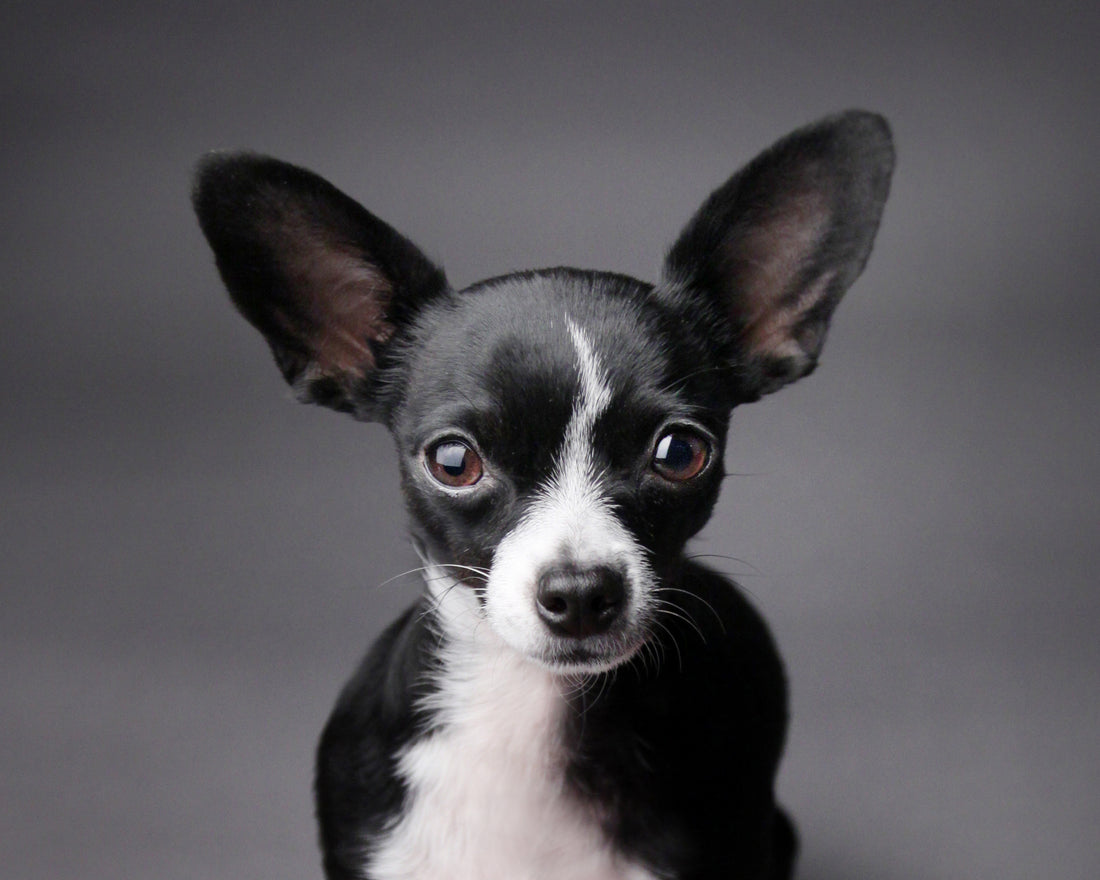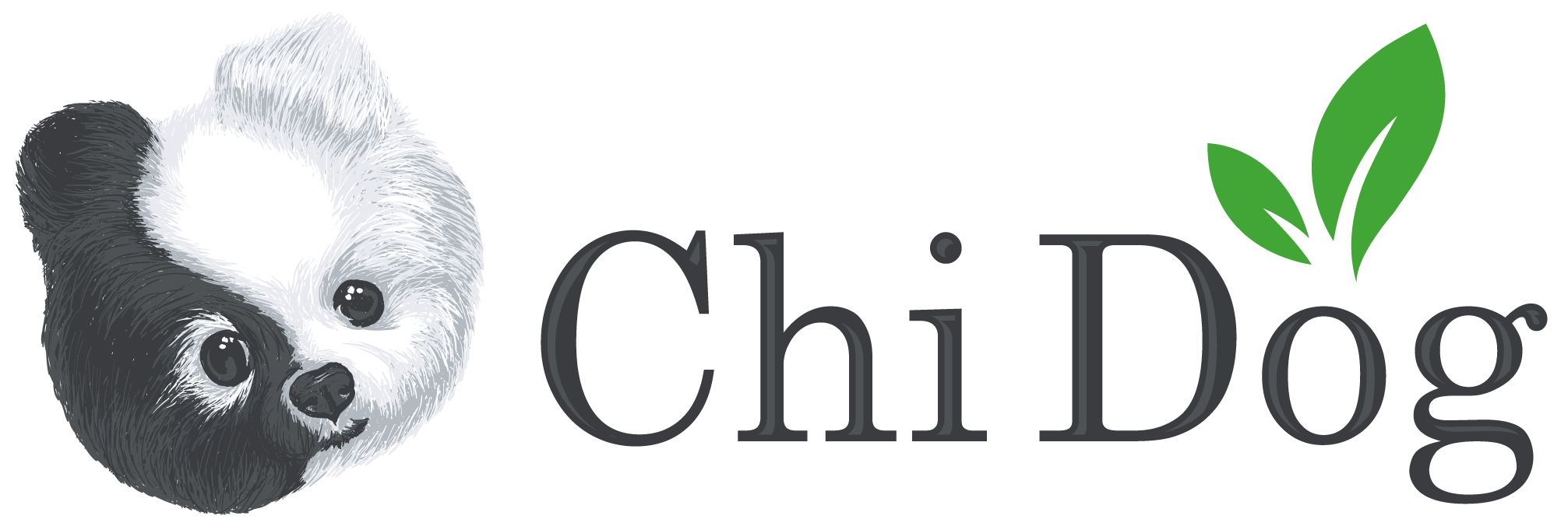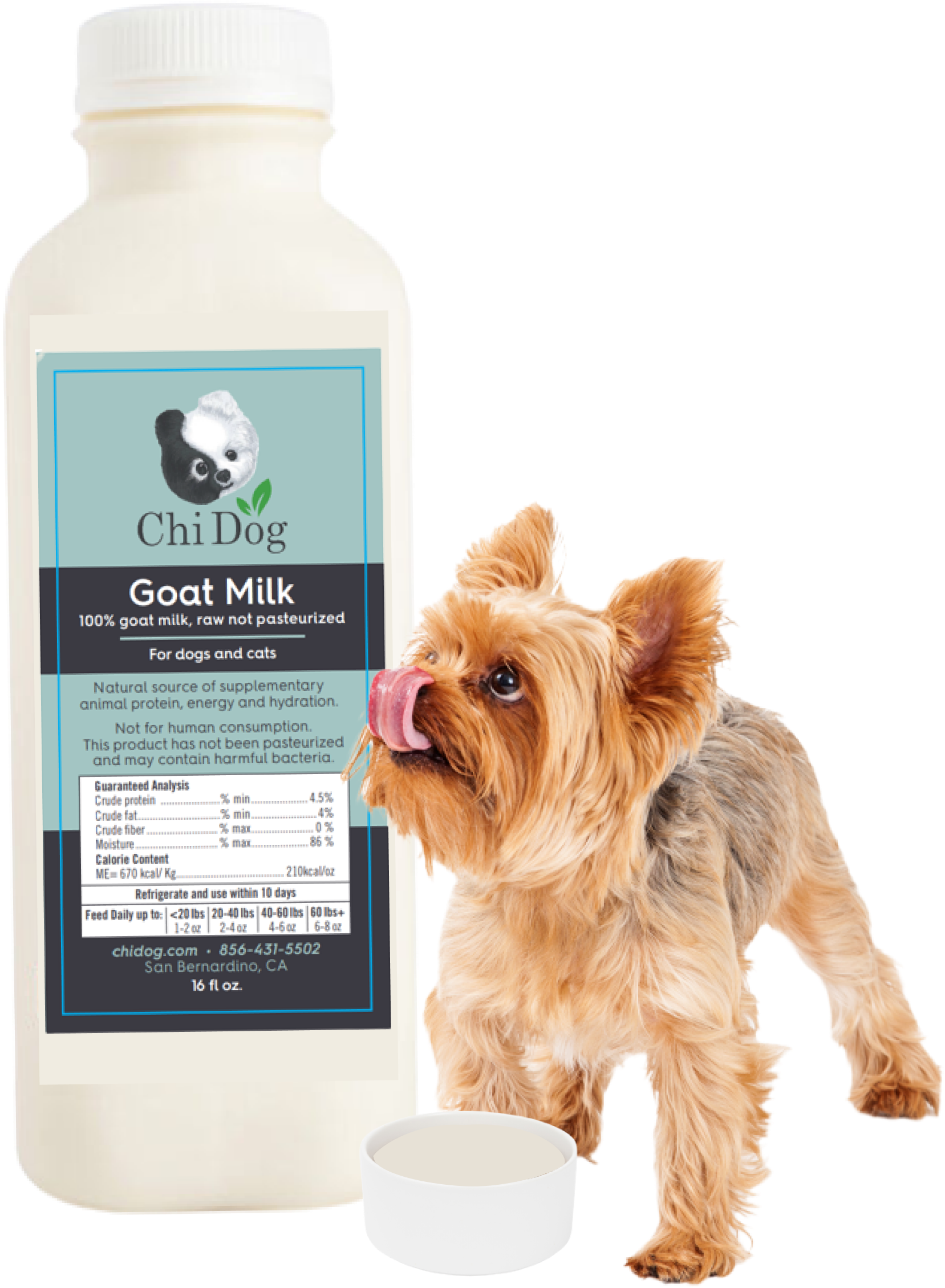
What Can I Give My Dog for Anxiety? The Best Diet & Dog Food for Anxiety


Your pup is more than just a pet - they are an integral part of your family, an inseparable companion, and a source of unending joy and love.
But maybe you’ve noticed something amiss. Lately, your furry friend seems a bit off - unusually jumpy, restless, and displaying peculiar behaviors that have left you puzzled and, quite frankly, concerned. Unfortunately, anxiety has gripped your dog and won’t seem to let go.
Like a shadow, anxiety has a way of creeping in unnoticed, gradually changing your dog's behavior and dampening their once vibrant personality. But just as a shadow dissolves in light, so too can this anxiety with understanding, patience, and the right care.
This begs the question - what can I give my dog for anxiety? Contrary to what you may have read online or been told by your vet, drugging your pet isn’t the answer. In fact, the solution may be as simple as adjusting their diet. That’s why we’ve decided to build this guide on the best dog food for anxiety.
Below, we’ll discover the link between diet and anxiety in dogs, and how traditional Chinese medicine therapy may be the answer you’ve been searching for to finally help your pet find relief and live a healthier, happier life.
At Chi Dog, we’ve developed the Fire Diet, which seeks to address a multitude of issues - one of which is anxiety. Before we talk about how it can help free your pup from the shackles of anxiety, let’s look at the issue at hand more in-depth.

Why Dogs Struggle With Anxiety
Dogs, much like their human counterparts, can experience a range of emotions, including anxiety. To understand why dogs struggle with anxiety, it's essential to comprehend the intricate workings of their emotional world.
Dogs are sensitive creatures, attuned to their environment and the emotions of their owners. They thrive on routine, familiarity, and a sense of security. However, when their world is disrupted or they perceive a threat - real or imagined - their emotional balance can tilt towards anxiety.
From the Traditional Chinese Medicine (TCM) perspective, anxiety is seen as a symptom of an imbalance in the dog's energy, or Qi. Stressors or anxiety triggers disrupt the flow of Qi, leading to an array of emotional and physical symptoms.
Signs and Symptoms of Anxiety in Dogs
The signs of anxiety in dogs can vary greatly, making it crucial for pet owners to be observant and attentive. Some common symptoms include:
- Excessive barking or howling
- Compulsive behaviors such as constant pacing
- Chewing or destroying items around the house
- Increased aggression or hyperactivity
- Changes in eating habits, including loss of appetite or overeating
- Displaying signs of fear or distress, such as cowering, trembling, or panting
- Regularly seeking comfort and attention from the owner
- Unusual toileting behavior, such as accidents in the house
It's essential to remember that these symptoms can also be indicative of other health problems, so it's always best to seek a veterinarian's advice if you notice any changes in your dog's behavior.
Common Triggers for Anxiety in Dogs
The triggers for anxiety in dogs can be diverse and individual, much like in humans. Some common triggers include:
- Separation from owners or other pets: This is one of the most common forms of anxiety in dogs, often resulting in destructive behavior when left alone.
- Fear of specific situations or objects: Thunderstorms, fireworks, vacuum cleaners, or a trip to the vet can all trigger anxiety in dogs.
- Changes in the environment: Moving houses, a new family member, or even rearranged furniture can create stress for your furry friend.
- Past trauma: Dogs who've been abused, neglected, or experienced a traumatic event can develop anxiety.
In TCM, these triggers are seen as disturbances to the dog's Qi, resulting in the symptoms of anxiety.
The Impact of Anxiety on Your Dog's Health and Behavior
Prolonged anxiety doesn't just affect your dog's behavior - it can also take a significant toll on their physical health. Dogs experiencing chronic anxiety may have weakened immune systems, making them more susceptible to infections and diseases.
Anxiety can also lead to digestive issues, skin problems, and weight changes due to altered eating habits. The constant stress can strain their heart, potentially leading to more serious cardiovascular issues over time.
From a behavioral standpoint, an anxious dog may become overly aggressive or withdrawn. They may struggle with basic obedience and become less responsive to commands. Over time, these behavioral changes can affect the quality of their life and the bond they share with their family.
Now, let’s get into the role of diet and anxiety in dogs. First, can dog food cause anxiety?
Can Dog Food Cause Anxiety? The Problem With Processed Commercial Pet Foods
As pet owners, it's easy to overlook the impact diet can have on our dog's mental state. We may think of food merely as a source of energy and satiety for our four-legged friends.
However, it's vital to recognize that what our dogs eat can profoundly influence their mood, behavior, and overall mental health. The saying 'you are what you eat' rings just as true for dogs as it does for humans.
Processed commercial pet foods, while convenient, often contain a slew of filler ingredients, artificial additives, and low-quality protein sources.
Not only do these foods lack essential nutrients needed for overall health, but they also contain elements that could potentially exacerbate anxiety in susceptible dogs.
The Role of Nutrition in Your Dog's Mental Health
Just as the food we eat can influence our mental health, the same holds true for our four-legged companions. Numerous studies have shown that nutrition plays a critical role in mental health, affecting brain function and behavior.
From the perspective of Traditional Chinese Medicine (TCM), this belief is held even stronger. A balanced diet that aligns with your dog's unique needs can support a harmonious flow of Qi, promoting mental balance and tranquility.
Specific nutrients are known to play essential roles in maintaining mental health. Omega-3 fatty acids, for example, contribute to brain health and have been shown to reduce symptoms of anxiety.
B-vitamins, particularly B1, B6, and B12, are vital for the nervous system and brain function, and their deficiency can lead to mood disorders. Tryptophan, an amino acid found in many proteins, is a precursor to serotonin, a neurotransmitter that regulates mood, sleep, and anxiety levels.
A diet that lacks these critical nutrients or doesn't deliver them in a form that's easily digestible and absorbable for your dog can leave them feeling out of sorts - nervous, anxious, or simply not their usual self.
On the other hand, a balanced diet that provides the right nutrients can support mental well-being, helping to alleviate anxiety and promote overall health. That being said, here’s where the problem with processed commercial pet foods lies…
The Problem With Processed Commercial Pet Foods
Unfortunately, the convenience of processed commercial pet foods often comes with a cost. These foods are frequently made with low-quality ingredients and undergo intense heat processing, which can strip away vital nutrients.
The energetic imbalance of these foods can potentially disrupt your dog's Qi, a critical life force in TCM, contributing to anxiety and other health issues. The good news? The best dog food for anxiety is just a few clicks away at Chi Dog. So, what can I give my dog for anxiety?
What is the Best Dog Food for Anxiety? Introducing Chi Dog’s FIRE DIET
Finding the best dog food for anxiety can be a challenging task, given the plethora of options available in the market. Not all dog food is created equal, especially when addressing specific health conditions like anxiety. So, what can I give my dog for anxiety?
This is where Chi Dog’s Fire Diet makes its grand entrance. It’s a meticulously crafted, holistic therapeutic diet designed with the principles of Traditional Chinese Medicine (TCM).
It integrates high-quality, human-grade ingredients, fresh veggies, and whole grains that not only nourish your dog's body but also restore the balance of their Qi, supporting mental tranquility.
Before we get into the details of this anxiety dog food, let’s talk about our approach to TCM across our entire lineup of diets.
Our Approach to Traditional Chinese Medicine Therapy
We formulate our integrative foods for dogs in accordance with the principles of traditional Chinese medicine therapy.
We believe that the pathway to health is through balance. This philosophy stems from TCM, a holistic approach to health that seeks to create harmony in the body. Our diet plans are specially designed to restore and maintain this balance, addressing specific health conditions like anxiety.
Chi Dog’s Fire Diet is a wonderful embodiment of our philosophy. It offers cooling properties and acts as a Yin tonic. Yin represents the elements of rest, rejuvenation, and tranquility, and a deficiency can manifest as anxiety in dogs.
By enriching the diet with Yin-enhancing ingredients, we aim to restore calmness and balance in your anxious dog. Now, what makes the Fire Diet the best dog food for anxiety, exactly?
Chi Dog’s Fire Diet: Our Solution for Dogs with Anxiety
The Fire Diet offers an innovative solution to anxiety in dogs. Its ingredients, including Turkey, Millet, Carrots, Edamame, and Broccoli, are chosen for their Yin-nourishing properties according to TCM. It’s a cooling diet that will help eliminate excess heat in your pet.
This diet is not only anti-inflammatory but also low in carbohydrates, making it easy on your dog's digestive system. It won’t just help your dog find relief from anxiety, but also other issues like skin allergies, pancreatitis, IBS, and a whole lot more.
Designed by practicing veterinarians who believe in the power of personalized food therapy, this diet could be a game-changer for your anxious dog. It's not just about relieving the symptoms of anxiety but about targeting the root cause and bringing about a profound transformation in your dog's health and wellbeing.
Tips for Changing Your Dog’s Diet for a Smooth Transition
Transitioning your dog to the Fire Diet should be done gradually to avoid any digestive upset. Start by replacing a small portion of their current food with the Fire Diet, gradually increasing the amount over a week or so. Be patient and monitor your dog’s response throughout this transition.
Remember, every dog is unique, and it's crucial to consider your dog's specific needs and preferences. If you have any concerns or queries, our team at Chi Dog is always ready to assist you. That being said, let’s look at a few other ways to help your pet find relief beyond dog anxiety food.

Beyond Dog Anxiety Food, Here are Tips for Helping Your Pet Find a Sense of Calm and Balance
While food therapy is a critical part of managing anxiety in dogs, it's not the only piece of the puzzle. So, what can I give my dog for anxiety beyond the best dog food for anxiety?
At Chi Dog, we advocate a holistic approach to pet health, and that includes considering other factors like stress management techniques, exercise, a consistent routine, and the power of affection.
Therapies and Techniques for Stress Relief
Anxiety can stem from various sources, from separation anxiety to fear of thunderstorms. Finding ways to soothe your dog during these stressful times is crucial.
Consider using calming dog beds, anxiety wraps, or even playing calming music. There are also anxiety-relief toys and puzzles that keep your pet's mind engaged and distracted from their stressors.
Some dogs may benefit from natural therapies like aromatherapy or CBD oil for dogs, which has been found to have calming effects. Always remember to consult your vet before introducing any new supplements or therapies.
Regular Exercise and Its Role in Anxiety Management
Exercise plays a vital role in managing your dog's anxiety. Regular physical activity can help burn off excess energy and promote the production of serotonin, a feel-good hormone. This can have a significant calming effect on your dog, reducing restlessness and promoting better sleep.
The type and amount of exercise will depend on your dog's breed, age, and health status. Even a simple daily walk can make a difference in promoting mental and physical well-being. This is something you should be doing whether your dog has anxiety or not, frankly.
The Importance of a Consistent Routine
Dogs are creatures of habit, and maintaining a consistent routine can provide a sense of security and predictability, thereby reducing anxiety. After all, distractions and changes to their typical routine are common anxiety triggers.
Try to keep feeding, exercise, and rest times consistent every day. Even minor changes can sometimes upset dogs prone to anxiety.
Physical Contact and Love
Never underestimate the healing power of a loving touch. Physical contact can be incredibly soothing for an anxious dog. Petting, stroking, and gentle massages can help reduce your dog's heart rate and soothe their nerves.
Moreover, spending quality time together strengthens your bond and provides your dog with the emotional reassurance they need.
Bringing Our Conversation on the Best Dog Food for Anxiety to a Close
There you have it - everything you need to know about the best dog food for anxiety. So, what can I give my dog for anxiety? The fire diet is just what your pet needs to find a sense of balance and calm, freeing them from the shackles of anxiety.
At Chi Dog, we believe that every dog deserves the best chance at a happy, anxiety-free life. While choosing the right diet is a significant step in managing anxiety, it's also about fostering an environment of love, security, and routine.
Together, let's make a difference in the lives of our furry friends, because they do so much to enrich ours. Remember, when you choose Chi Dog, you're choosing a path of health, harmony, and balance. Let's embark on this journey together.
To learn more and order the FIRE DIET for your furry four-legged family, please visit ChiDog.com!
_________________________________________________________________________
About the author
Dr. Susan Bohrer has been a practicing veterinarian for 15 years teaching home cooking techniques to clients. Dr. Bohrer is Certified in Traditional Chinese Veterinary Medicine’s Herbal Therapy, Acupuncture and Food Therapy.
Download PDF here



